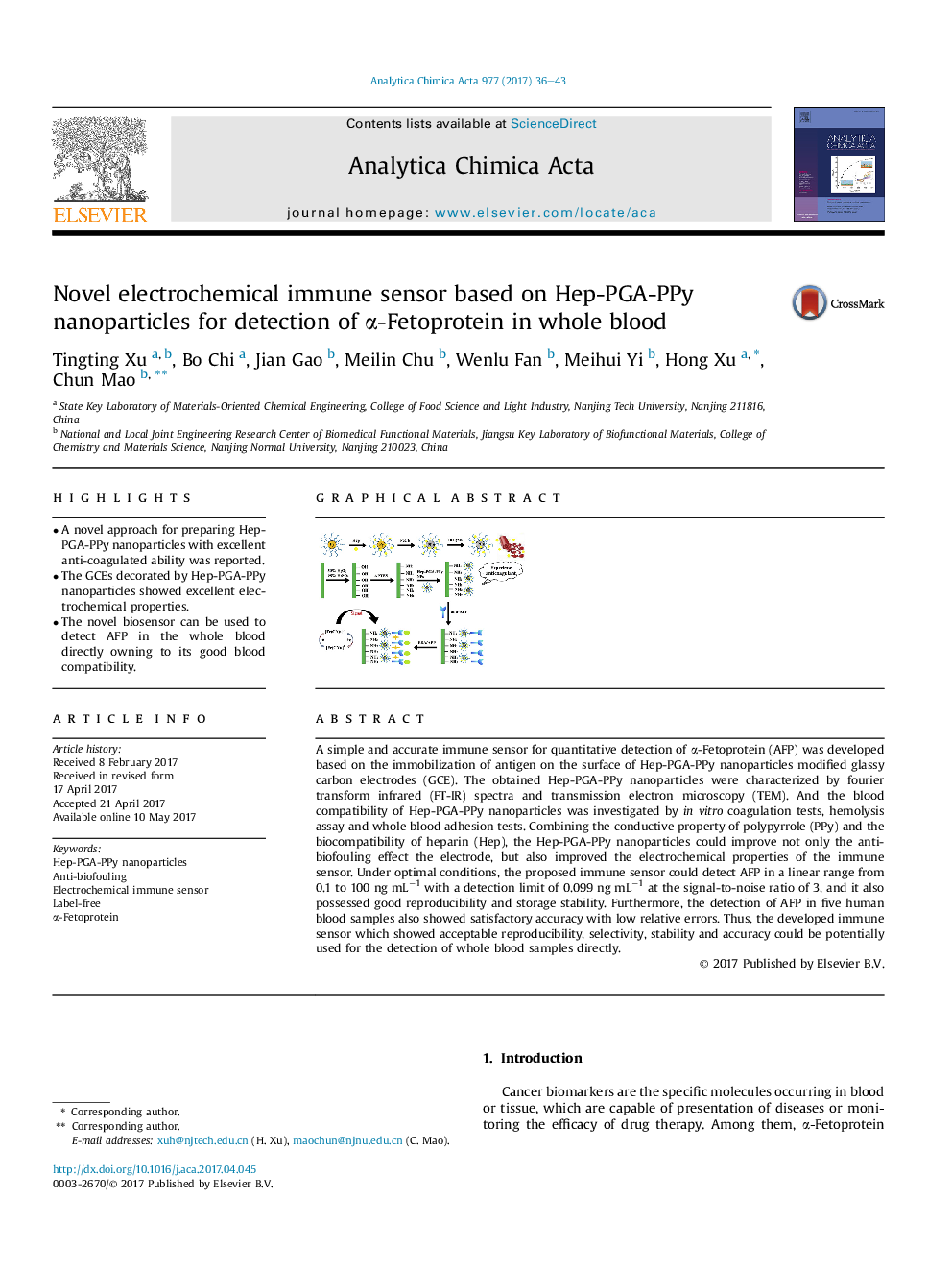| Article ID | Journal | Published Year | Pages | File Type |
|---|---|---|---|---|
| 5130773 | Analytica Chimica Acta | 2017 | 8 Pages |
â¢A novel approach for preparing Hep-PGA-PPy nanoparticles with excellent anti-coagulated ability was reported.â¢The GCEs decorated by Hep-PGA-PPy nanoparticles showed excellent electrochemical properties.â¢The novel biosensor can be used to detect AFP in the whole blood directly owning to its good blood compatibility.
A simple and accurate immune sensor for quantitative detection of α-Fetoprotein (AFP) was developed based on the immobilization of antigen on the surface of Hep-PGA-PPy nanoparticles modified glassy carbon electrodes (GCE). The obtained Hep-PGA-PPy nanoparticles were characterized by fourier transform infrared (FT-IR) spectra and transmission electron microscopy (TEM). And the blood compatibility of Hep-PGA-PPy nanoparticles was investigated by in vitro coagulation tests, hemolysis assay and whole blood adhesion tests. Combining the conductive property of polypyrrole (PPy) and the biocompatibility of heparin (Hep), the Hep-PGA-PPy nanoparticles could improve not only the anti-biofouling effect the electrode, but also improved the electrochemical properties of the immune sensor. Under optimal conditions, the proposed immune sensor could detect AFP in a linear range from 0.1 to 100 ng mLâ1 with a detection limit of 0.099 ng mLâ1 at the signal-to-noise ratio of 3, and it also possessed good reproducibility and storage stability. Furthermore, the detection of AFP in five human blood samples also showed satisfactory accuracy with low relative errors. Thus, the developed immune sensor which showed acceptable reproducibility, selectivity, stability and accuracy could be potentially used for the detection of whole blood samples directly.
Graphical abstractThe graphical abstract was shown the formation of Hep-PGA-PPy nanoparticles and the stepwise construction process of modified glassy carbon electrode (GCE) for detection of α-Fetoprotein. Combining the conductivity of polypyrrole, biocompatibility of γ-polyglutamic, anticoagulation of Heparin and advantages of NPs, Hep-PGA-PPy NPs were synthesized and used to decorate on the GCEs. The prepared immune biosensors not only have anti-biofouling ability then avoid the electrode pollution, but also exhibit excellent electrochemical properties. This developed immunoassay is competitive and could be potentially used for the detection of whole blood samples directly.Download high-res image (252KB)Download full-size image
